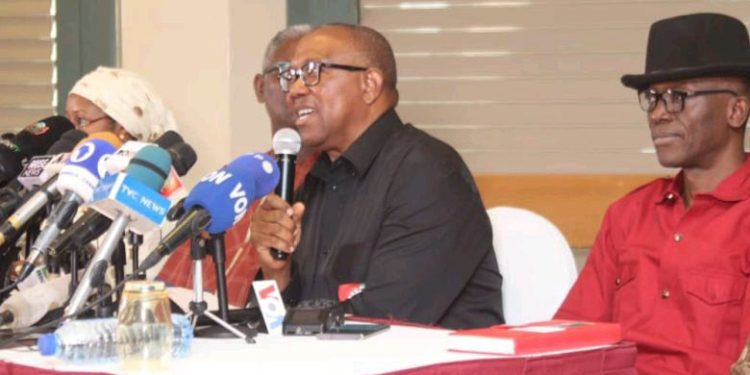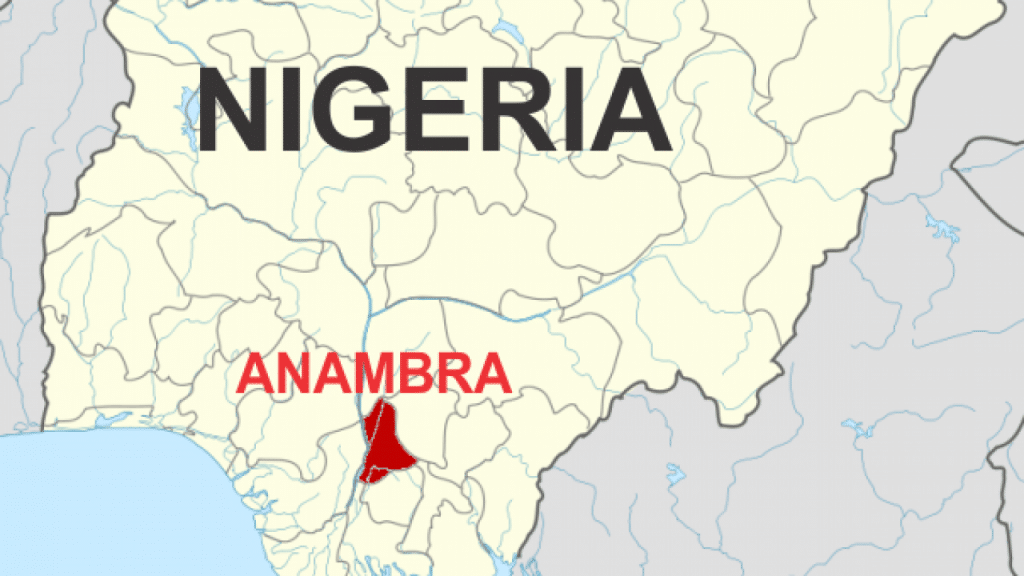Labour Party presidential candidate in the 2023 general election, Peter Obi, has rejected the Supreme Court verdict upholding the election of Bola Ahmed Tinubu of the All Progressives Congress (APC).
Obi, in a world press conference on Monday, said the Supreme Court ignored rigging, identity theft, forgery, and perjury in its judgment.
He said: “Setting legal issues aside, the Supreme Court exhibited a disturbing aversion to public opinion just as it abandoned its responsibility as a court of law and policy. It is, therefore, with great dismay that I observe that the Court’s decision contradicts the overwhelming evidence of election rigging, false claim of a technical glitch, substantial non-compliance with rules set by INEC itself as well as matters of perjury, identity theft, and forgery that have been brought to light in the course of this election matter. These were hefty allegations that should not to be treated with levity. More appalling, the Supreme Court judgment willfully condoned breaches of the Constitution relative to established qualifications and parameters for candidates in presidential elections. With this counter-intuitive judgment, the Supreme Court has transferred a heavy moral burden from the courtrooms to our national conscience. Our young democracy is ultimately the main victim and casualty of the courtroom drama.
“Without equivocation, this judgment amounts to a total breach of the confidence the Nigerian people have in our judiciary. To that extent, it is a show of unreasonable force against the very Nigerian people from whom the power of the Constitution derives. This Supreme Court ruling may represent the state of the law in 2023 but not the present demand for substantive justice. The judgment mixed principles and precepts. Indeed, the rationale and premise of the Supreme Court judgment, have become clearer in the light of the deep revealing and troubling valedictory remarks by Hon. Justice Musa Dattijo Muhammad, (JSC) on Friday 27th October 2023.
“In disagreeing very strongly with the ruling of both the Presidential Petitions Court (PEPC) and the Supreme Court on the outcome of the 25th February 2023 Presidential election as declared by Independent National Electoral Commission (INEC), as democrats who believe in the rule of law, we recognize that the Supreme Court is the end stage of the quest for legal closure to the matter. As a party and as candidates, Datti and I have now exhausted all legal and constitutional remedies available to us. However, this end is only another beginning in our quest for the vindication of the hope of the common man for a better country. After all, sovereignty belongs to the people! If only for historical purposes, it behooves us to place our disagreement with and deep reservations about this judgment on public record.
“We have long been aware of how weak national institutions have negatively affected our democracy. This year 2023 has been quite remarkable and revealing. INEC has displayed incompetence in the conduct of its statutory duty. The judiciary has largely acted in defiance of constitutional tenets, precedents, and established ground rules. Political expediency has preceded judicial responsibility. A mechanical application of technicalities has superseded the pursuit of justice and fairness. Both INEC and the Supreme Court as the referees, respectively shifted the goalposts in the middle of the game.”
Obi’s rejection of the Supreme Court verdict comes after Atiku Abubakar, the presidential candidate of the Peoples Democratic Party (PDP), also rejected the verdict.
Atiku, in a world press conference on October 30, said the Supreme Court verdict was a “travesty of justice”.
He said the verdict would have “negative consequences for Nigerian democracy”.
The Supreme Court had on October 26 upheld the election of Tinubu as president.
Tinubu had been declared the winner of the February 25 presidential election by the Independent National Electoral Commission (INEC). However, Obi and Abubakar challenged the result of the election.
The Supreme Court dismissed the petitions of both candidates, saying that they had not provided sufficient evidence to support their claims.






